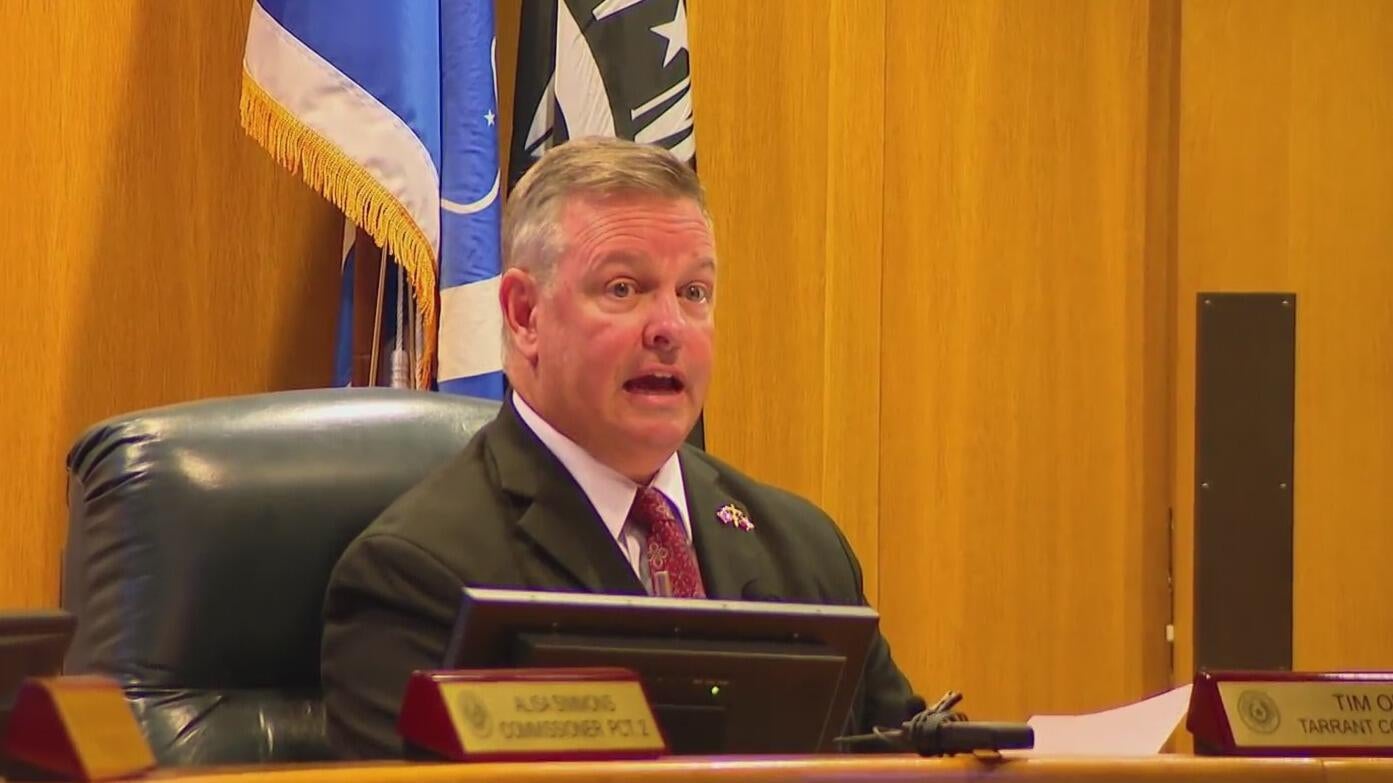Tarrant County citizens file lawsuit against new redistricting map
Less than a day after Tarrant County commissioners approved a controversial redistricting proposal, a group of citizens filed a lawsuit claiming intentional discrimination.
According to the Lone Star Project, the lawsuit claims that Tarrant County Judge Tim O'Hare and his followers engaged in intentional racial discrimination in violation of the Voting Rights Act and the U.S. Constitution by drawing the new district lines.
"Intentional discrimination is still against the law," said lead legal counsel for the citizen plaintiffs, Chad Dunn. "The map they drew, the process they used to draw it, and the animosity shown to the citizens of Tarrant County violate the Voting Rights Act and the Constitution."
In the filing, attorneys claim, "Map 7 surgically moves minority voters from District 2 to District 1 while just as carefully moving Anglo voters from District 1 to District 2. The resulting map—in a county in which the majority of residents are non-Anglo—has three Anglo-majority precincts and one majority-minority precinct."
The lawsuit further says 150,000 thousand people are denied their right to vote in the 2026 election by the redistricting, a move that disproportionately impacts Black and Latino voters: "Black adults are thus four times more likely than Anglo adults to be disenfranchised under Map 7 and Latino adults are over twice as likely to be disenfranchised than Anglo adults."
Republican County Judge Tim O'Hare has repeatedly said the purpose of redistricting is political, to gain an additional Republican seat on the court. The two Republican commissioners who supported the plan believe it's legally justifiable.
"And so I just don't want those in here who are opposed to the redistricting effort to be blindsided or disillusioned, that what they've been told by their leaders that this is blatantly unconstitutional, it doesn't turn out to be like that," said Republican Commissioner Matt Krause at the court meeting on Tuesday.
The federal lawsuit alleges this mid-census redistricting violates the Constitution and the U.S. Voting Rights Act.
"So the legal question here is whether it's partisan and/or racial gerrymandering," said Anthony Gutierrez, the executive director of Common Cause Texas, a nonpartisan organization dedicated to defending democracy. "Partisan gerrymandering is basically legal. Racial gerrymandering is not."
According to analysis from the UCLA Voting Rights Project, data shows the new map options "dilute Black and Hispanic voting strength by eliminating one of two Minority-performing districts. The alternative [Public Interest Legal Foundation] maps also unnaturally divide (crack) Black and Hispanic neighborhoods by dividing communities of interest along racial lines. This results in the minority population being too small to be able to meaningfully influence election outcomes."
"Looking at the maps, just like my initial take, I think they legally have just gone too far," said Gutierrez. "They're disenfranchising too many minority communities for a court to allow this to stand."
The lawsuit is asking for the court to prevent Tarrant County from implementing the new map. It's unclear how quickly a hearing will take place in the case.
CBS News Texas reached out to Judge O'Hare's office about the next steps in this redistricting process and how this legal battle will impact it, but has not yet received a response.
Hundreds of residents speak out for, against the redistricting
More than 200 people spoke out about redrawing boundary lines during public comment Tuesday night.
The majority who spoke were against redistricting, including the mayors of Arlington, Mansfield and Forest Hills. There were still several speakers who expressed their support. Several used the phrase "don't Dallas my Tarrant."
"I want to say that I fully support deterring redistricting efforts. These lines haven't been updated since 2010," said Carlos Turcios, the community development committee chairman for the Tarrant Republican Party.
Commissioners moved into executive session around 3 p.m. on Tuesday after some tense moments between the two Democrats and the three Republicans.
As Commissioner Alisa Simmons expressed all the reasons she is against redistricting, Judge Tim O'Hare abruptly moved to executive session in an effort to limit her comments.
O'Hare is spearheading this process and has been clear that it's about partisan politics. He wants another Republican seat on the court to ensure conservative leadership for the next decade.
"It's a very divided country and the parties, I'm not sure, have never been further apart in their beliefs," O'Hare said. "I don't apologize for being a Republican. I don't apologize for being a conservative."
"It's not partisan. It is racism."
Critics believe the redistricting is racial gerrymandering, saying it goes beyond partisan politics and say it dilutes the voting power of minorities.
"Absolutely, it's not partisan. It is racism," Simmons said during the meeting.
The new map does appear to take areas with high Black and brown populations from precinct two and put them in precinct one.
SMU political science professor Calvin Jillson said what the court did is not unusual, but the legality of the new lines comes down to intentions.
"Oh, this absolutely gerrymandering – it is the redrawing of electoral boundaries for partisan purposes," Jillson said. "The question is whether the purposes behind the redrawing were actually political, in which case gerrymandering is legal, or racial discrimination, in which case it would not be legal."
Check out more on the CBS News Texas YouTube page:





